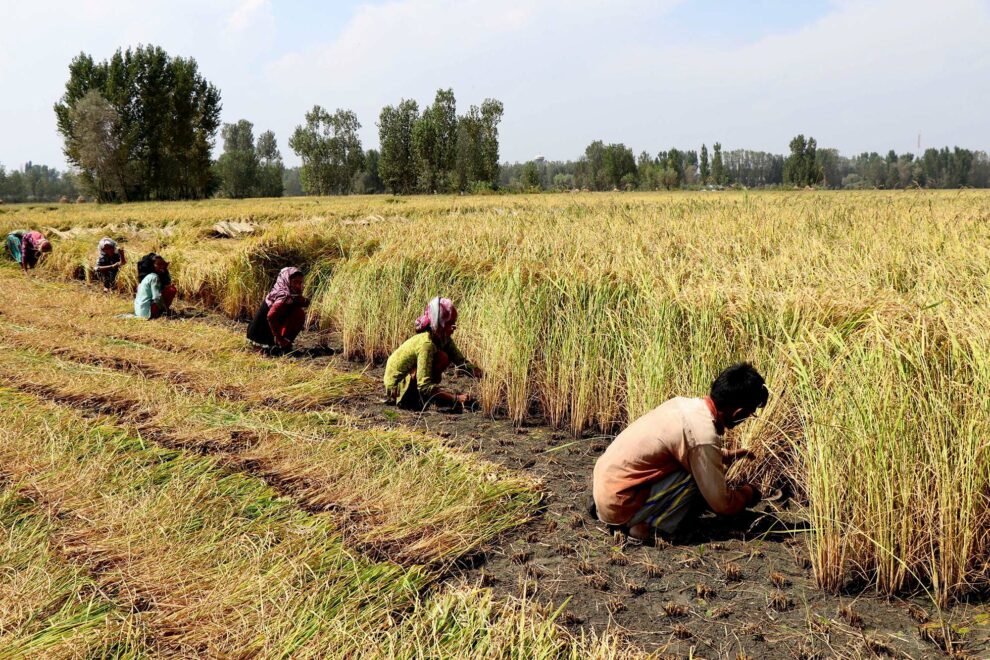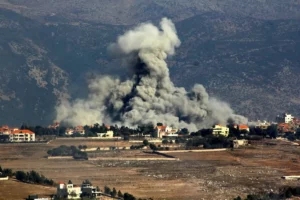Emirati agribusiness Al Dahra is in talks to acquire more agricultural land in Egypt, two sources with direct knowledge of the matter said, in a deal that could reduce Cairo’s dependence on imports of staple crops but also reignite water use concerns.
The sources did not say how close a deal might be, but the investment could potentially involve hundreds of millions of badly-needed dollars to reclaim desert and grow key crops such as wheat and corn.
Al Dahra, half owned by Abu-Dhabi sovereign wealth fund ADQ, is in talks via its subsidiary Al Dahra Egypt with the Egyptian military’s National Service Projects Organisation (NSPO) to buy land in Toshka in southern Egypt, but is also considering other areas, the sources said, speaking on condition of anonymity.
One said a deal could involve the acquisition of 500,000 feddans (210,000 hectares) in phases, either through a purchase or long-term lease agreement. The second source indicated around half that quantity of land.
Egypt, a top importer of basic commodities, has been trying to reduce its import bill as it grapples with a foreign currency shortage that caused it to defer wheat payments.
Wheat imports are used to make heavily subsidised bread, a politically sensitive benefit available to tens of millions of people.
Egypt has been able to reclaim some desert as it seeks to feed a growing population but still only cultivates about 4% of its total land area, according to data issued by the U.N. Food and Agriculture Organization.
Al Dahra told Reuters in a statement that it works closely with stakeholders to look for opportunities to expand in a sustainable way.
“Should new agreements or partnerships be established in Egypt, Al Dahra will announce (them) at an appropriate time,” the company said.
Reuters was not able to reach the NSPO for comment.
Activists have often criticised the acquisition of agricultural land in poorer countries by oil-rich Gulf states seeking to bolster their own food security as land grabs.
In Toshka from the 1990s investors from Saudi Arabia and the UAE, including Al Dahra, took stakes in an agricultural mega-project that former President Hosni Mubarak tried to develop by pumping water from the Aswan High Dam reservoir to reclaimed farmland in the desert 50km (30 miles) away.
Al Dahra acquired about 100,000 feddans, but the mega-project stalled despite huge government investments and amid cricitism by environmentalists over its use of water.
In 2014, as President Abdel Fattah Al Sisi vowed to revive the Toshka project, Al Dahra said it was changing its strategy to focus more on wheat cultivation, and would prioritise selling it to the local market instead of exporting it.
The government withdrew some of Al Dahra’s land in 2019 due to its failure to stick to the timetable for cultivation in Toshka, according to Egyptian newspaper Al Mal.
Al Dahra now farms just under 40,000 feddans in Toshka, East Owaynat and Salheyi and sells 80% of its produce to the local market, it said.
Al Dahra had previously faced criticism for exporting much of its produce.
Gamal Seyam, an agricultural economics professor at Cairo University who had worked with the government on research on Toshka, said planting wheat in the desert was not a good use of water.
Even if wheat grown in areas needing irrigation is not exported, it was better to import grain from places where it can be grown more easily and cheaply, through deals such as one that Egypt signed with Al Dahra earlier this year, he said.
Source : Reuters

















Add Comment